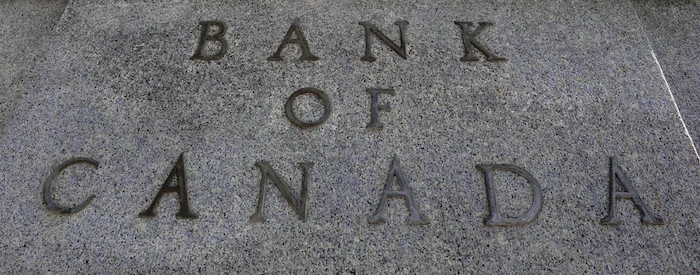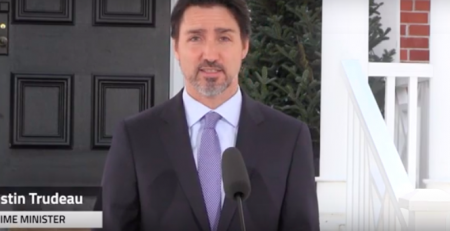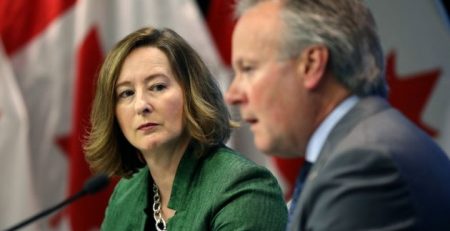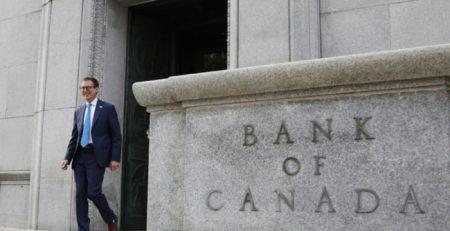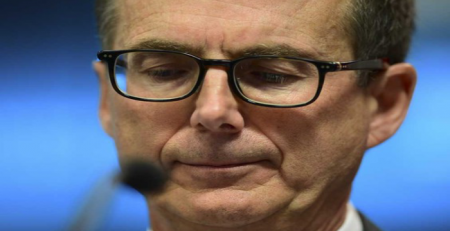Bank of Canada leaves key interest rate steady at 0.5%
[Source: CBC, April 12, 2017]
The Bank of Canada today left its benchmark rate unchanged, at 0.5 per cent, saying it is too early to conclude that the economy is on a “sustainable growth path” despite a recent rebound that led it to bump up its 2017 outlook.
“During the rest of this year and into 2018 and 2019, growth in Canada is expected to moderate but remain above potential,” the bank said Wednesday.
Economists had widely predicted that the bank would not shift the rate.
Canada added 19,400 jobs in March, unemployment up slightly
Canada flips to $972M trade deficit in February after 3 surpluses in a row.
In its latest monetary policy report, the bank said Canada’s economic growth in recent quarters has been stronger than it forecast in January, but characterized the expansion as “uneven.”
The central bank said investment in the oil and gas sector, coupled with strong consumer demand and residential investment, were key drives in the better-than-expected economic performance.
“In contrast, non-commodity business investment and exports remain weak, raising questions about the medium-term sustainability of the upturn,” the bank said.
Over the course of its current forecast, the bank expects the economy to continue to grow, but at a more moderate pace. The bank now expects real gross domestic product to expand by 2.6 per cent in 2017, up from its January projection of 2.1 per cent, before slowing to 1.9 per cent in 2018 and 1.8 per cent in 2019.
Looking at the first quarter of this year, the bank said oil and gas sector investment and the pace of housing activity are both unlikely to continue at the same rate given market conditions.
Canadian GDP has ‘rip-roaring’ start to the year, prompting economists to sweeten outlook.
On the topic of housing, the bank singled out the Greater Toronto Area market, saying price growth has sped up “and seems to have entered a phase in which speculation is playing a larger role.”
Speaking to reporters, Bank of Canada governor Stephen Poloz said: “I think it is time to remind to folks that prices of houses can go down as well as up,”
Senior deputy governor Carolyn Wilkins said the pace of activity in the Toronto housing market is “unlikely to be sustainable.”
Timing of possible hike:
The timing for potential future interest rate hikes also came into play as the central bank said it now expects the economy to hit full capacity in the first half of next year, a bit earlier than it had forecast in January.
BMO Capital Markets senior economist Benjamin Reitzes said Canada’s central bank remains a long ways from following the U.S. Federal Reserve in boosting rates, but added that an April 2018 hike in Canada looks appropriate.
“If the positive data persist through to July, expect a more positive tonal shift from the [Bank of Canada] then,” Reitzes said in a commentary.
“Despite a generally improved forecast, Poloz remains focused on the soft spots in Canadian labour markets and exports, and is not yet ready to declare Canada ‘out of the woods’ when it comes to unevenness in economic growth,” TD senior economist Brian DePratto said in a commentary.
However, DePratto added that the “shifting balance of risks around inflation, particularly as we move into 2018 suggest the potential for a ‘pulling forward’ of the first rate hike.”
The Canadian dollar, which had been trading around 75.15 cents US just prior to the bank’s announcement, moved higher to 75.40 cents US, up 0.39 cents from Tuesday’s close.

